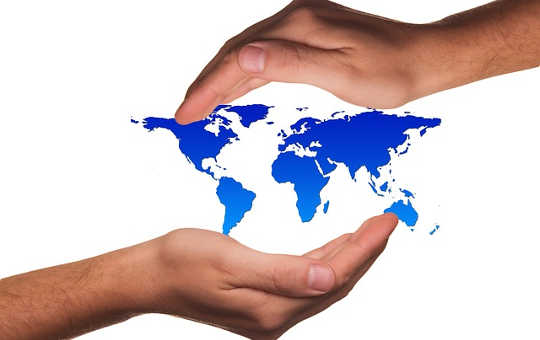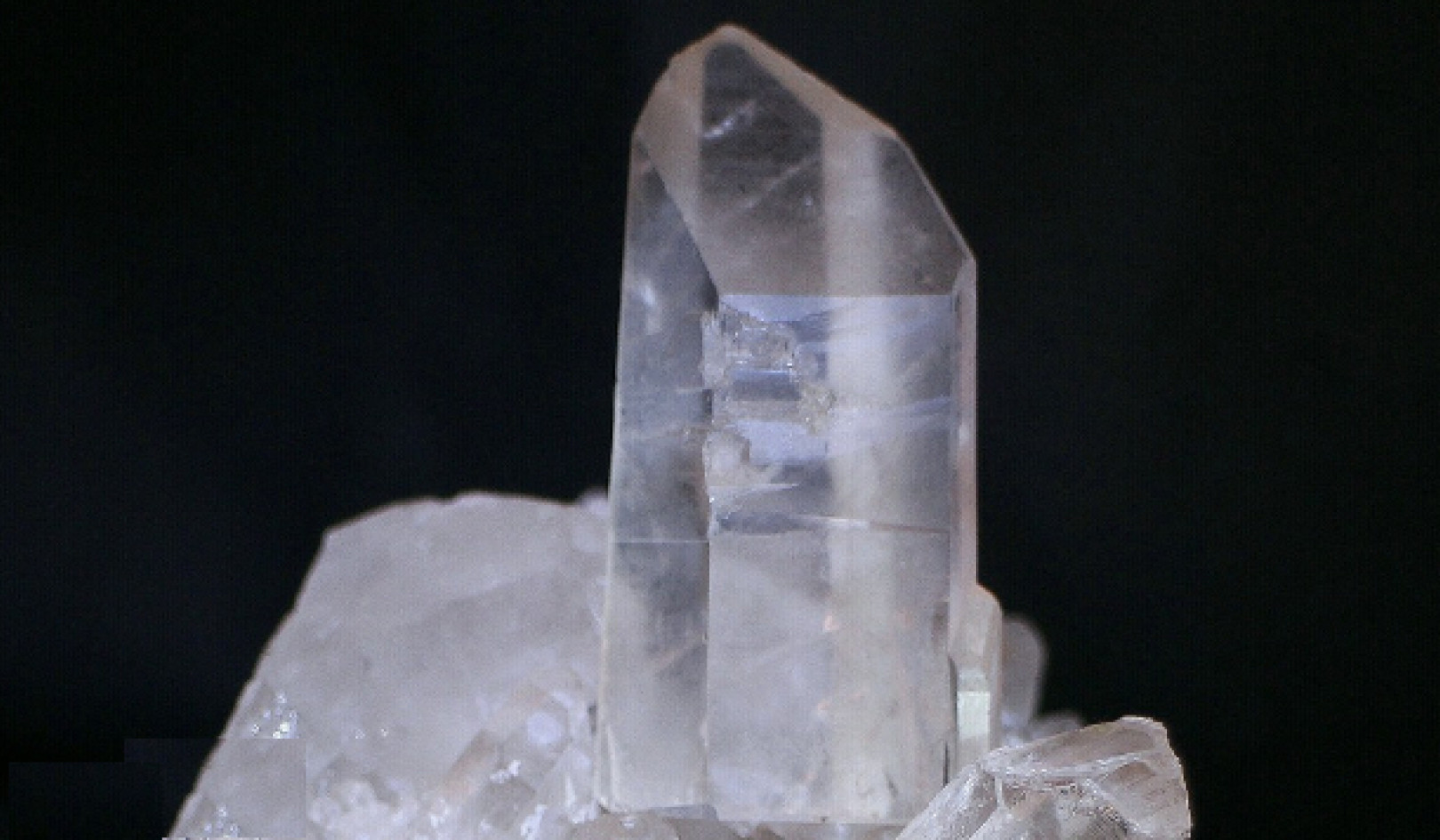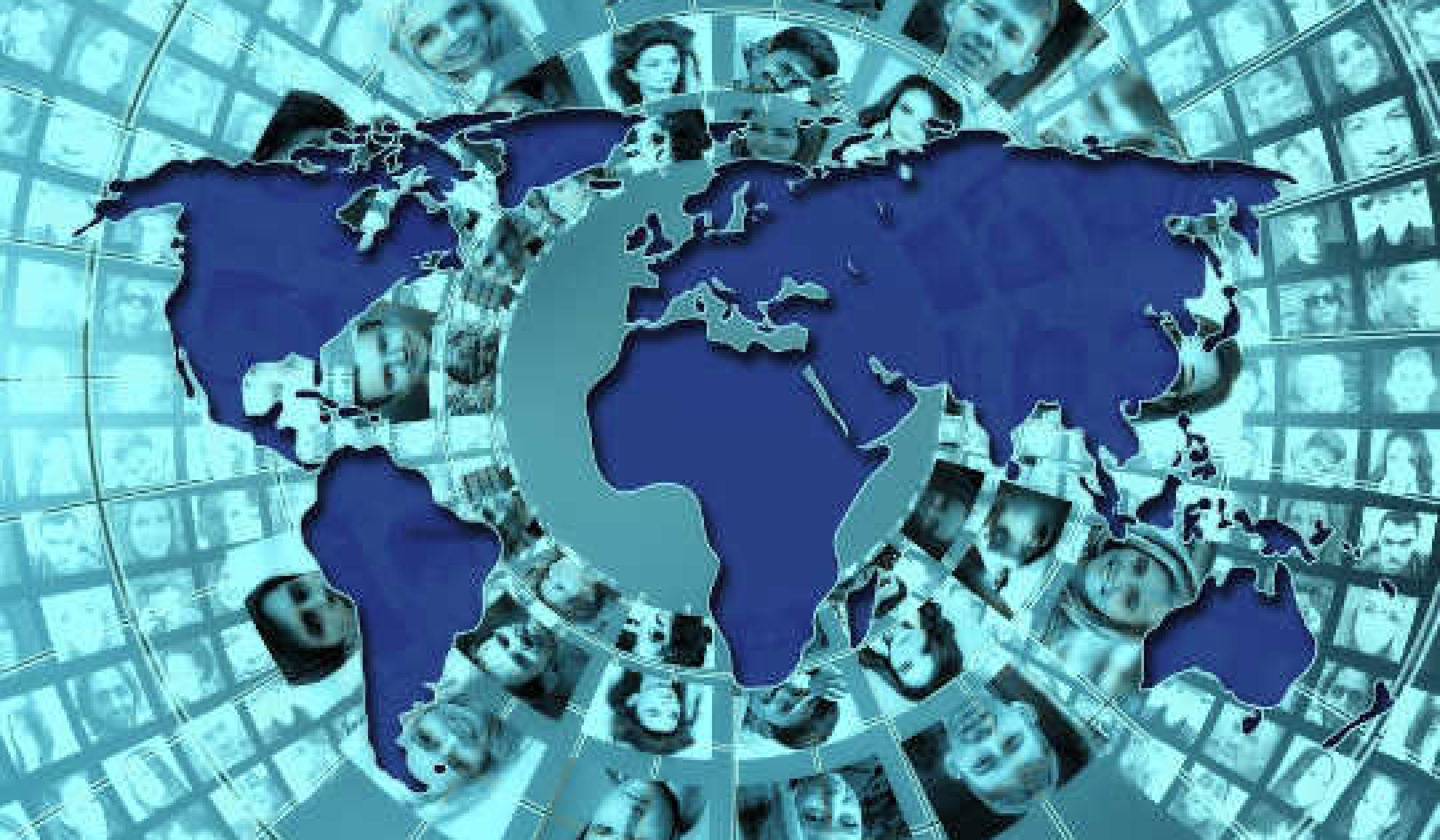
We are living in a world where environmental pollution has become part of life. Civilized humans today must live in cramped urban areas, drink contaminated water, take in polluted air, eat contaminated foods, and endure loud, disturbing noises. Global warming, acid rain, holes in the ozone layer, deafening city noise, and contaminated water, food, and air have all degraded the quality of life and caused many health problems.
The grave environmental situation we face today is created entirely by humans. People today seem to be selfish, materialistic, and money-oriented, constantly undervaluing and ignoring the importance of our environment.
According to estimated statistics, each year we pour tons of pesticide into the air we breathe and vegetables and fruits we eat. The average person is exposed to over 700 chemicals in city drinking water and over 500 chemicals in the home environment, not to mention what we encounter at work and when travelling.
This cannot help but have a great impact on our health. In fact, a number of diseases today can be directly associated with environmental pollution. For instance, polluted water and food are blamed for cases of diarrhea, stomach ulcers, and food poisoning. The noise pollution of modern cities often causes headaches, insomnia, deafness, stress, and mental disturbances, such as violence and suicide. The thinning of the ozone layer is thought to be the major cause of skin cancer, which has been increasing rapidly. Allergic reactions and hypersensitivity ailments, for instance, are among the most common and costly of U.S. health problems, afflicting at least 35 million Americans at an annual medical cost of $1 billion.
Environmental concern is not a recent issue
The ancient Chinese were keenly aware of the importance of environmental hygiene. They knew clearly that fresh air and clean water were essential to overall health and longevity. They also knew that the quality of air and water was better in mountainous areas than in crowded cities. Many of them traded the conveniences and comforts of city life for the fresh air, clean water, and quiet surroundings of the mountains. Typically, these were Taoist and Buddhist recluses, who chose to spend most of their enlightened lives in secluded mountainous areas in search of physical health and mental enlightenment.
It is little wonder that most of the oldest living Chinese are enlightened people. Similar examples of longevity are found in Norway, Japan, Russia, and other countries, where the most long-lived people are found living in mountainous areas.
Ancient people did not eat much, nor did they have the comforts and conveniences provided by modern medical technology, but they enjoyed better health than modern people do. Indeed, most of the diseases that kill Americans today were simply unheard of at that time.
How could they eat so little and yet be so energetic and healthy? The secret lies in the fact that they drew a lot of vital energy from Mother Nature. They drank clean water, breathed pure air, bathed in the mild sunlight, and ate raw fruits and vegetables that were nourished naturally by a healthy environment. These are unlimited sources of energy provided by nature. However, they are beneficial to us only when they are clean and protected from man-made pollution.
The following discusses several areas in the environment that can cause significant risks to your health. These are chemicals and other man-made pollutants, radiation (ultraviolet rays), air pollution, noise pollution, and water pollution.
Chemicals
There is abundant evidence in animal biology to show how pollutants destroy an animal's ability to reproduce and reduce its immunity to disease. One of the first modern clues that pollutants might affect the hormonal lives of animals came in 1977.
A bird toxicologist studying sea gulls on Santa Barbara Island off the Los Angeles coast noticed a strange phenomenon: the balance between male and female sea gulls in one area was grossly disturbed -- with a ratio of one male to nineteen females. Fry knew that for over two decades, 4 million pounds of DDT (a pesticide) had been pumped into the ocean from a nearby chemical plant. Obviously, he believed man-made pollutants were the root cause. Since then, wildlife experts worldwide have filed similar findings, reporting declining births, lowered sperm counts or testicular deformities in fish, panthers, alligators, and other animals in polluted areas.
Coincidentally, similar phenomena have been reported in humans. According to a 1992 Danish study, sperm counts in men around the world are only about half of what they were before World War II. Scientists believe that pollutants in the air, water, and food have a lot to do with this. Our food is thus filled with compounds that have estrogenic effects, such as in some red meat and some fish.
Scientists have known for decades that DDT and similar chemicals are stored in human fat and accumulate there. It would be the height of scientific naivetT to conclude that what has caused health problems in animals would have no effect on humans.
Devra Lee Davis, formerly a policy advisor in the Department of Health and Human Services, and a researcher at the World Resources Institute in Washington, D.C., argues that environmental pollutants are causing an increase in some cancers which may be preventable. She believes that foreign estrogen in the form of man-made chemicals can behave in the human body like hormones, mimicking estrogen or blocking testosterone.
Said Davis: "We used to believe that only a woman's natural estrogen could turn the key on these receptors and cause breast cancer. It is now clear that many chemicals in plastics and pesticides can turn the key as well."
It is well known that pesticide residues leach into groundwater. Exposure to pesticides used on crops and lawns as well as certain cosmetics and plastic bottles may be partially responsible for an increase in hormone-related breast, testicular, and prostate cancers as well as infertility.
Davis' argument is confirmed by Mary Wolff, a specialist in environmental medicine at the Mount Sinai School of Medicine. She looked at more than 200 New York women, and found that those with blood showing the highest levels of DDE -- a breakdown product of DDT -- were four times more likely to have breast cancer than those with the lowest levels of DDE in their blood.
The widespread use of pesticides and agricultural chemicals has significantly polluted the soil we live on and the foods we grow. One devastating effect that agricultural chemicals and pesticides may have on humanity is the steadily declining amount of sperm in men worldwide. In the 1960s, only 8 percent of all males in the world had reproduction problems. This percentage has increased to 40 percent. If we allow this tendency to continue, human beings may, in the not too distant future, lose the ability to reproduce and continue the species effectively.
Radiation
According to recent estimation by scientists, a high proportion of cancer is linked to factors in the environment, which include all nonhereditary influences such as air, water, tobacco use, and so on. For instance, due clearly to excessive exposure to ultraviolet sunrays, skin cancers are increasing at epidemic rates in the U.S. and around the world.
The earth's atmosphere shields the earth and its inhabitants from high doses of ultraviolet rays and other solar radiation. We are disturbing this atmospheric blanket with air pollutants. Among the cancer-inducing stimuli of our environment is the very energy source upon which life itself depends -- the sun. This is because every day an enormous amount of carbon dioxide from automobiles, industrial wastes, and household products is being released into the sky, polluting the air and causing severe damage to the ozone layer. As a result, too much ultraviolet radiation invades our environment and our bodies, causing skin cancer, especially among people who work long hours outdoors. Scientific studies show convincingly that skin cancer, especially squamous epitheliomas, is induced by ultraviolet radiation.
The negative effects of ultraviolet rays (UVR) impact not only our skin; it also affects our eyes and immune system. UVR negatively affect our immune system because they are biologically active. As such, they will cause the DNA in our body to undergo a variety of changes upon absorbing them.
Air Pollution
Since air is so crucial to life, the quality of life itself depends, to a large extent, upon the quality of air we breathe. Thus, a simple yet universally true equation of life reads: The cleaner and ampler the air supply, the healthier and longer will be your life, and vice versa. An ample supply of fresh air is essential to a sound blood circulation system, which, in its turn, directly affects the health and the efficiency of the mind. Moreover, fresh air is a cure for many kinds of diseases. It has a tonic effect on us. This explains why people who are exposed to fresh air for a good portion of their lives are found to have stronger lungs, with fewer incidences of asthma and other respiratory problems than those who are not.
According to scientific estimation, an inhabitant of an industrial city stands a better than average chance of contracting a deadly lung disease or suffering from heart trouble, just by breathing polluted air. Meanwhile, a research report presented by Birmingham University in the United Kingdom states that those born in areas within a three miles radius of a railway or highway have a high death rate from cancer. An even higher death rate from cancer is reported for those born within a three-mile radius of a refinery, chemical factory, or high-temperature furnace. Children born in such places have a 20 percent higher chance of dying of cancer before they reach adulthood than children who are not born in such areas. This report also points out that the environmental conditions of our birthplace have a greater impact on our health than any later place of residence. This shows that the environment of our birthplace is a lasting factor in our health throughout life.
Air pollution alone is a serious environmental concern in many parts of the world. Millions of tons of harmful gases and particles are released into the air each year. Almost every major city in America is polluted. The polluted air we breathe everyday is at least partly responsible for the incidence and aggravation of coughing, sinusitis, bronchitis, heart disease, and lung cancer. Air pollution hurts the body both by directly inflaming and destroying the lung tissue and by weakening the lung's defenses against contamination.
Polluted air can contribute to the premature death of people with heart and lung diseases. It may pose an even greater threat to children in urban areas. Children are more vulnerable to air pollution in part because their lungs continue to develop throughout childhood. Damage from air pollution can impede lung development and may lead to chronic lung disease later in life.
Noise Pollution
Today, we live in an age where industry is all around us producing noises such as traffic and industrial noises, which disturb our biological balance and mental tranquillity. It becomes a burden that weighs on us, bringing to the surface submerged tensions and stress. It is estimated that 20 million Americans are exposed daily to noise that is permanently damaging to their hearing.
Noise can interfere with sleep, aggravate medical cases, and delay recovery from disease. Traditional Chinese medicine maintains that a quiet environment is conducive to a good sleep, faster recovery from disease, and a peaceful mind. This theory is backed up by modern medicine. For instance, Dr. Samuel Rosen of Mt. Sinai Hospital in New York City warns us: "We now have millions with heart diseases, high blood pressure, and emotional illness who need protection from the additional stress of noise." Also, a growing number of evidence strongly suggests a link between exposure to noise and the development and aggravation of a number of heart disease problems. The reason is because noise causes stress and the body reacts with increased adrenaline, change in heart rate, and elevated blood pressure.
A comparative study performed many years ago in China on 100 sufferers of heart disease and hypertension divided them into two groups and placed them in different locations. The first group went to a hospital located in the midst of noisy city center, while the others went to a hospital located in a quiet suburban area. Exactly the same medications and treatments were given to both groups. Six months later the group hospitalized in the suburban area showed a 30 percent higher rate of recovery than the group situated in the city center. The Chinese have taken this lesson seriously and have built all of their rehabilitation and recovery centers for patients of chronic diseases in suburban or mountainous areas. This allows the patients to take advantage of the powerful natural healers present in such areas: fresh air, clean spring water, and quiet and beautiful surroundings. The results have been very encouraging and convincing.
Unfortunately, many people do not have much choice in deciding where to live and work. It is highly advisable that these people get out of the office and into the open air as often as they can during the day. This enables them to take in fresh air and rid themselves of the stale and polluted office air. By doing this, they will find themselves refreshed and invigorated, and their work efficiency increased.
Another kind of noise pollution is vibration pollution. Those who were born or live in areas close to railways and highways are among the worst impacted by this special kind of pollution. Several years ago, an entire line of trees planted alongside a busy highway in the U.S. suddenly withered without apparent reason. This aroused the curiosity of scientists who, after a lengthy examination, found that the constant, strong vibration caused by passing automobiles had killed the trees.
If trees can be affected by vibration in this way, we humans may be even more vulnerable to it. This is because the human body is equipped with many vibration "devices," which cause us to react in different ways to external vibrations with different frequencies. A scientific experiment performed several years ago had a man sitting on a chair receive different degrees of vibration through the chair, varying from low to high frequencies. It was shown that when the vibration was at a frequency of 1 hertz, he felt the vibration in his head, accompanied by muscle pains and other minor uncomfortable feelings. When he was given 2 hertzs, he felt sleepy, dizzy, and out of balance. As the vibration frequency exceeded 5 hertzs, it became totally unbearable for him. As a result, his breathing and speech were affected. The greatest human reaction to external vibration happens when the vibration falls between 4 to 8 hertzs. In other words, vibrations within this frequency range can cause the greatest harm to our health.
Water Pollution
Water stands next only to air in terms of priority for survival of life. Nobody can survive without water for more than a week. Water is listed as the first of the Five Elements that underlie the medical as well as philosophical thinking in traditional China. The importance of water can be seen from another angle. Nearly 70 percent of the weight of the human body is water. We need to maintain that bodily proportion in order to be fit and healthy. When the percentage of water in the body drops below that level, it is known as dehydration. Dehydration will lead to various health problems and even death.
Drinking plenty of clean water every day is an excellent way of ridding the body of impurities. Unfortunately, not only does air fill our body with pollutants, but also some water is so dirty that we have to use powerful chemicals to make it drinkable. The water is "purified" with chemicals such as chlorine, alum, and other inorganic minerals. Our bodies can only absorb organic minerals such as from vegetables, fruits, and meat. Inorganic minerals have to be eliminated from the body by use of vital qi, otherwise they can cause health problems. Consumption of city water "purified" with chloride has been associated with rectal cancer in some studies and possibly with breast cancer, too.
What You Can Do
Here are some of the simple measures you can take to combat environmental pollution:
1. Change the air in your house every day your bedroom in particular -- by opening the windows for at least two hours after getting up in the morning. Make sure that the places where you live and work are well ventilated and have plenty of fresh air.
2. Walk or exercise in the open air at least twice a day, preferably by a waterfront or in a park.
3. Make sure that the water you drink and use to prepare foods is clean. Boil it if necessary before using or use bottled water.
4. Drink the juice of a carrot and a potato on a regular basis. This will cleanse your lungs of the pollutants you breathe in.
5. Steam pig or chicken blood until it becomes solid. Cut the blood cake, fry or bake it together with some vegetables, and eat it as a meal. Regularly eating this once or twice a week can keep your lungs and intestines clean and healthy. The ancient Chinese tell us that pork and chicken blood can carry away pollutants in the lungs and intestines.
6. Make your house, especially your bedroom, as soundproof as possible to eliminate outside noises. If this cannot be achieved and you are disturbed by noise, play some light music to neutralize the disquieting effects of noise.
7. Keep a respectful distance from active cigarette smokers.
8. Avoid radiation from electric blankets, computer and TV screens, as well as digital alarm clocks. Do not place these electronic devices near your pillow in the bedroom.
9. Wear protective clothing or sunscreen to protect you from ultraviolet rays.
10. Wash all fresh fruits and vegetables to help remove any pesticide residue.
(see bottom of page for references for this article)
Reprinted with permission of the publisher, Llewellyn Publications.
©2000. All rights reserved. www.llewellyn.com
Article Source:
Chinese Health Care Secrets: A Natural Lifestyle Approach
by Henry Lin.
 Grounded in Taoist principles (Nature's Way), the age-old wisdom of China teaches that by living your daily activities in accordance with the laws of nature you can achieve and maintain ultimate health and wellness. Chinese Health Care Secrets is a comprehensive reference to the history and practices of Chinese health care. It offers highly effective techniques that are completely natural and easy to use. Many have never before been published and are considered secrets even in China.
Grounded in Taoist principles (Nature's Way), the age-old wisdom of China teaches that by living your daily activities in accordance with the laws of nature you can achieve and maintain ultimate health and wellness. Chinese Health Care Secrets is a comprehensive reference to the history and practices of Chinese health care. It offers highly effective techniques that are completely natural and easy to use. Many have never before been published and are considered secrets even in China.
Click here for more info and/or to order this book.
About the Author
 Henry B. Lin has been a health/life/feng shui consultant for many years. Profoundly studied in traditional Chinese culture, he has been providing quality services to people from all over the world in natural health care and self-healing consultation, instruction of Chinese fitness exercises and martial arts, feng shui design, and astrological readings for life and business planning. For almost thirty years, he has been a close student of Dr. Wan Laisheng, the great modern Chinese martial artist and medico-athlete, a famous medical doctor and philosopher in China. Mr. Lin has published articles in local periodicals such as The New Times and Seattle Journal and is the author of the book What Your Face Reveals.
Henry B. Lin has been a health/life/feng shui consultant for many years. Profoundly studied in traditional Chinese culture, he has been providing quality services to people from all over the world in natural health care and self-healing consultation, instruction of Chinese fitness exercises and martial arts, feng shui design, and astrological readings for life and business planning. For almost thirty years, he has been a close student of Dr. Wan Laisheng, the great modern Chinese martial artist and medico-athlete, a famous medical doctor and philosopher in China. Mr. Lin has published articles in local periodicals such as The New Times and Seattle Journal and is the author of the book What Your Face Reveals.
Books by this Author
at InnerSelf Market and Amazon
References for Environmental Hygiene
- Allan R. Cook, Environmentally Induced Disorders Sourcebook (Detroit, MI: Omnigraphics, Inc., 1997), 6, 7, and 36.
- Amanda Spake, "Is the modern world giving us cancer?" Health, October 1995, 52-56.
- B. Roberson, "Conferences Point to Growing Concern about Possible Links between Breast Cancer and Environment," CMAJ 154, no. 8 (April 15,1996): 1253-5.
- ChungHua Yu Fang I Hsueh Tsa Ch ih (Journal of Chinese Preventive Medicine) 31, no. 3 (May 31, 1997): 163-5.
- Cook, Environmentally Induced Disorders Sourcebook, 75, 76, 79, 125, 333, 391, 431, 432, 567, 581.
- David and Anne Frahm, Reclaim your Health (Colorado: Pinon Press, 1995).
- Journal of the National Cancer Institute (April 21, 1993).
- R. Bonita et al., "Passive Smoking as well as Active Smoking Increases the Risk of Acute Stroke," Tobacco Control 8, no. 2 (Summer 1999):156-60.
- S. Zheng et al., "Studies on Relationship between Passive Smoking and Lung Cancer in Non-smoking Women,"
- T. L. Lash et al., "Active and Passive Cigarette Smoking and the Occurrence of Breast Cancer," American Journal of Epi demiology 149, no. 1 (January 1,1999): 5-12.























